It was as if the world was put on hold in March 2020. Now, after a year full of loss, with nearly 570,000 lives claimed by the COVID-19 virus in the U.S., many have seen their lives changed forever. Americans have re-prioritized their lives, as they lost or gained jobs, returned to school and raised and taught children. In these edited interviews, healthcare workers, a restaurant owner, a nursing student, a human resources executive and a coach talk about how the pandemic has affected them.
Pandemic gave nursing student a chance to reinvent himself
By Ansley Young
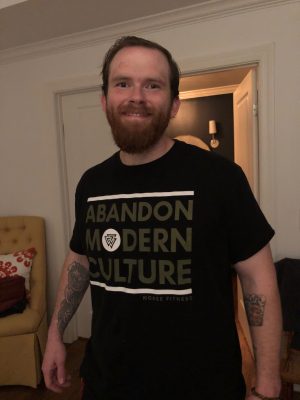
For Tim Duff, 31, of Jacksonville, North Carolina, the pandemic pushed him to embrace the new normal and find a new career path.
I thought [the pandemic] was going to be over in two weeks. We were all wondering what this was and how this was going to end up. However, it pulled me out of a black hole and into what I now want to do.
Last year, I was furloughed from my job at AirMark. I was unemployed for a little bit and looked into going back to school. Now, I’m back in school for a change of job as a registered nurse.
The biggest turning point, in general, during the pandemic was signing up for school. That was the major shift; turning down a job offer doing what I used to do, and signing up for school.
Everything kind of trickled down from being furloughed, as far as job choices and even finding rugby as an extracurricular. I think the pandemic is what gave me the time in order to show up at practices. I was able to pursue a sport that I’ve never been able to pursue before.
The family dynamic has grown stronger. We added a new member to the household: a canine. I guess we’re all not miserable like others.
When something takes away everything that you know as normal, it forces you to find a new normal. To figure out where you are and what you’re doing is a little bit more important now.
Everything turned in the right direction because of the pandemic.
New mom looks back at a year of adapting and re-prioritizing
By Payton Guinan
Any number of years of a successful restaurant group is something to be celebrated. Gina Stefani-Ilić, 36 and the managing partner of Phil Stefani Signature Restaurants in Chicago, planned to celebrate their 40 years of business in March 2020, when the world was shocked by COVID-19. Stefani-Ilić and her family pivoted, to support their restaurant staff.
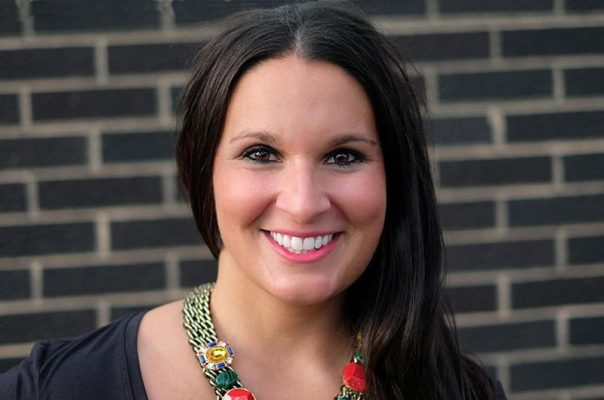
When my husband got COVID-19 at the end of April, that quickly made me realize how fragile life is, and it gave me this perspective of how serious it was. At that time, we didn’t know much about how people were recuperating from it, and it was just a very scary time and a major eye-opener. Luckily, he recovered from the virus, but I realized that I needed to start re-prioritizing what was important to me.
As a family and a company, our goal was to continue to employ as many people as we could. If we couldn’t give people jobs, then how could we give back; so we donated food from our restaurants and assisted our unemployed employees and their families.
At the very beginning of the pandemic, I found out I was pregnant. Fast forward to December when I had my baby. My husband and myself were the only people allowed in the hospital room, we weren’t allowed to have our families there. Instead of looking at that as a really depressing reality, I looked at it as a time that my husband and I got to bond with our baby and have no distractions and just really be able to start this new life together.
Educator and coach navigates new ways to teach young athletes
By Nick Porisch
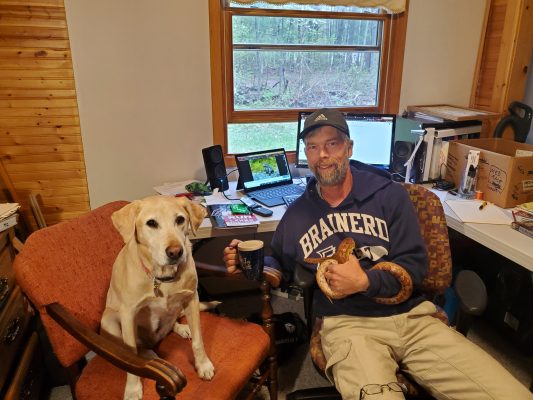
Chris Hanson, 50, of Brainerd, Minnesota, witnessed the impact of COVID on America’s youth first hand as a cross country skiing coach and middle school educator. For him, it was all about taking everything in stride.
The season was all built around modified schedules and meets. Fortunately, being outdoors, our activities are relatively safe compared to other sports, and this was recognized by state regulations, so we were able to have a fairly fleshed-out season that ended up going fairly well.
We had to navigate a lot of delays and changing rules, but for some of our athletes this meant a much more relaxed environment early on, while we waited to find out if we were going to be able to compete whatsoever. In some aspects, our season was honestly simplified. For middle school sports, travel was eliminated completely, and shorter distance-learning school days meant our practice schedule became a lot more flexible.
COVID did definitely affect our day-to-day practice, though. We kept the boys and girls separate throughout practice, broke down the team into “pods” of 10 athletes who would stay together every day, and, of course, enforced pretty strict mask rules. That being said, we were able to go the whole season without any confirmed COVID cases or quarantines. All things considered, it was a successful season for our boys and girls teams, and one we won’t forget for a long while.
A new job, a new town and ‘a whole different ball game’
By Riley Schroeder
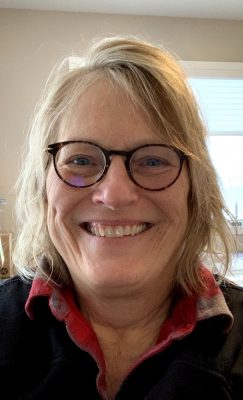
The pandemic brought on big changes for Judy Derra, 63, who’s an executive at a pharmaceutical company. She missed seeing her grandchildren, but she also found a new job and moved to a new town.
Overall, my life has changed a lot, but from nothing that was exactly due to the pandemic.
I took a new job, and we will be working from home for a long time. This has pretty much been the biggest change for me, besides not seeing my grandkids as much. The biggest difference is that [I] didn’t get the chance to hug [my] grandkids. A lot of it was on phone calls, but you miss some of the personal interactions.
I did sell my house back in August. Every time that we had somebody come to see the house, I had to make sure they had booties available, plus masks and gloves. But because I did not have any type of a camera inside the house, I wasn’t totally aware of whether or not they were touching anything. So I had to go back in and disinfect everything.
I moved to Franksville, Wisconsin. They’re pretty much following along the same guidelines, but some of the people up here do not adhere to the guidelines as much. But now that everything’s kinda opening up a little bit more, it’s a whole different ball game.
After some soul-searching, higher-ed worker says ‘a flow of opportunities came my way’
By Karla Hoyos
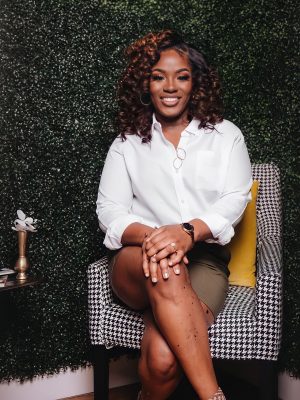
Leah Jones, a 30-year-old from Dallas, was working as a human resources recruiter for a state government agency when the pandemic hit. She left what she called a “toxic workplace” and found new peace of mind.
I was working in such a toxic workplace; no one appreciated my hard work and dedication. Not only was I physically tired from work, but my mental health was severely affected; it was at subzero. I couldn’t sleep, I began to develop social anxiety. I knew I needed help, so I decided to go to therapy. Just when I was trying to go, everything shut down.
Although I was in a dark place mentally, it was up to me if I wanted to continue being afraid. During the quarantine, I reflected a lot. It took me time to realize that I was really complacent with my life, but deep down I knew what I deserved and that there was something better waiting for me. It took me time and willpower to realize my potential and my self-worth, and ever since, a flow of opportunities came my way.
My job eventually called me back to return to work, but I had other plans. I received a job opportunity in higher education, that has placed me into a prominent career track to become an HR director and I gladly accepted it. I couldn’t be any happier.
Quarantine was a learning experience; I learned many things that allowed me to catapult into the next position of my life and career.
Nurse sees COVID’s effect up close: ‘I know it’s for real’
By Frida Arellano
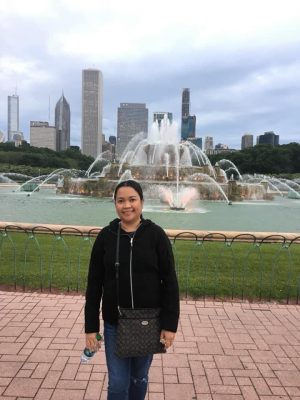
Jessica Abangan, 47, first started working as a registered nurse in the Philippines 26 years ago. Since the start of the pandemic, she has been working in the COVID unit at Community Hospital in Munster, Indiana.
It has gotten better. A lot of people have gotten vaccinated already, but some are still trying to be careful because it’s not a guarantee that you will not get sick.
There are still some people who don’t really believe that COVID is serious. Some people think that life should go on and just don’t really care. They go anywhere without even protecting themselves, while some people have families who got very sick and died because of COVID.
When COVID started, people weren’t allowed to go into the hospital, and it was so sad because people were dying with no one by their side. Everything was very strict, making sure that people don’t bring the virus [into] the hospital. At least now, since COVID cases have gone down, they allow visitation, but only one family member at a time. Visitation hours are shortened, but at least people get the privilege just to see their loved ones.
I work in healthcare. I know it’s for real; we’re still trying to be careful. I still get paranoid here and there, especially if I go out. If I see somebody, or if I get closer to somebody who has been coughing like crazy, I will be like, ‘Oh my gosh. I need to get away from them.’ Because you never know. I know that if I get sick, I might be able to give it to my children, my husband, and it’s still not easy. It’s a serious thing.”
For nurse, vaccines mean ‘there is a light at the end of the tunnel’
By Mia Martinez
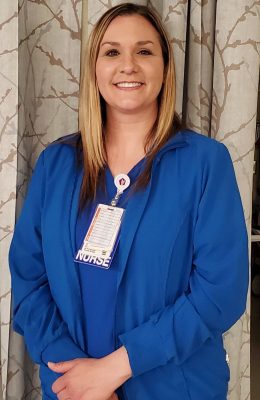
Angelie Martich is a preoperative and postoperative nurse at Community Surgery Center at the Community Hospital in Munster Indiana. Her biggest nightmare — as a mother and a nurse — arrived with the pandemic.
I received a notification in January of 2020 that the virus was here. I was already gearing up mentally, but I was mostly thinking that we had this all under control. As time went on, I realized that we were not handling this.
A year ago on March 13, it was my son’s last day of school, and I came off of shift early. I was screaming at all of the kids to get away from each other because I did not know how this virus was going to affect people. It was the fear of the unknown that really got to me.
I’d say my life has changed professionally because I’m a nurse in the middle of a pandemic. I can tell you one thing: I’ve never been afraid ever in my life to take care of anybody with any disease. I’ve taken care of some of the worst of the worst patients known to man. I was even around when SARS first hit years ago. And with this, professionally, I can tell you right now, this scares the living daylights out of me.
Going to work every day is extremely stressful because I don’t know 100% if the people that I see every day have COVID or not. But I am hopeful because we do have the vaccines. So there is a light at the end of the tunnel, which I didn’t see before, but now I can see that, but it will take time.

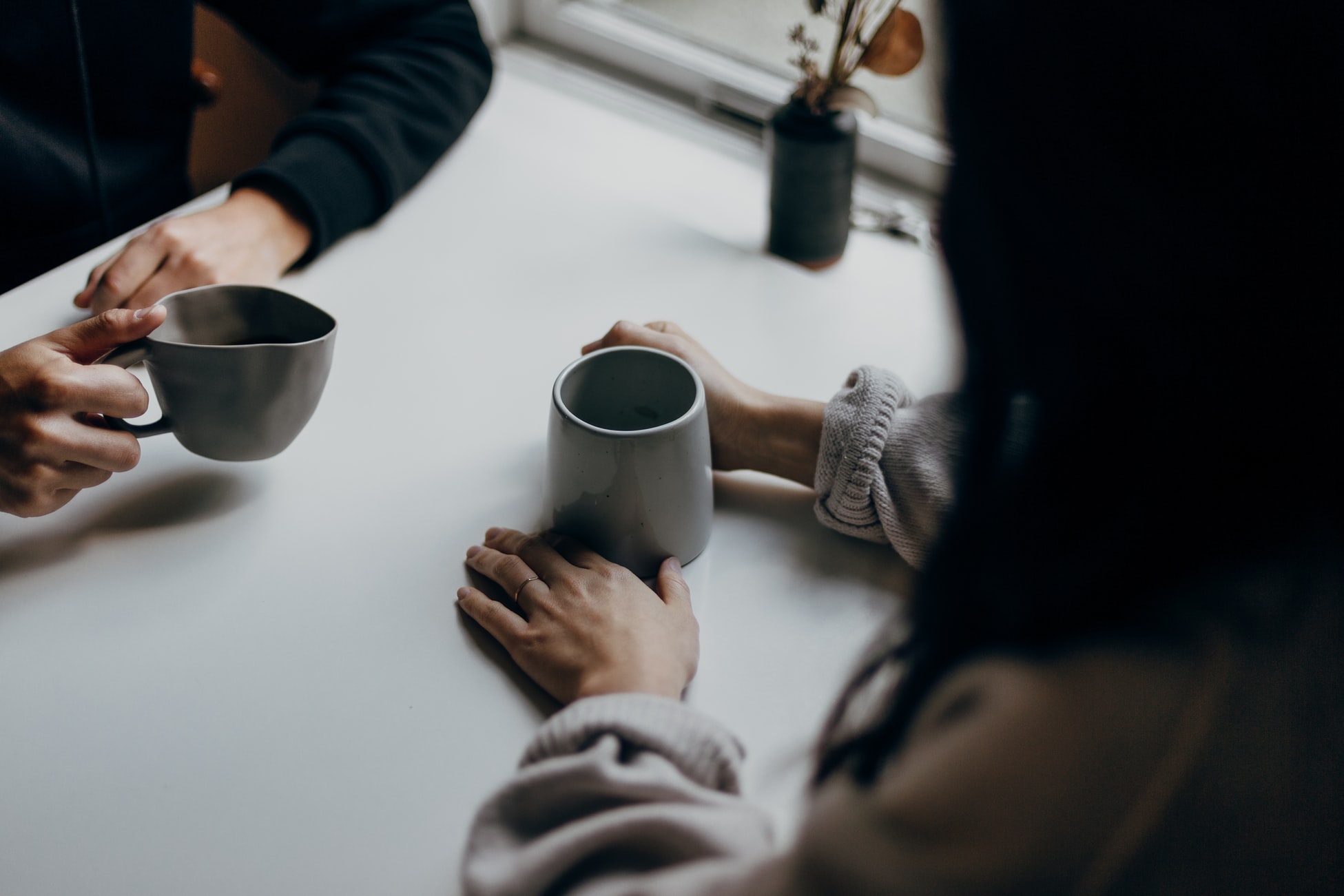
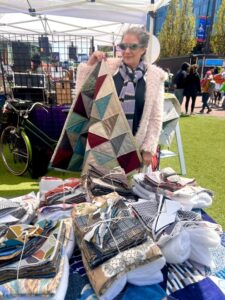


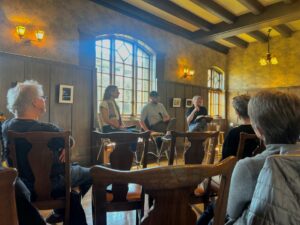

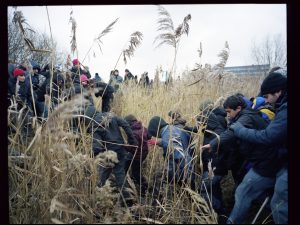
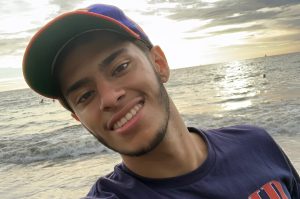
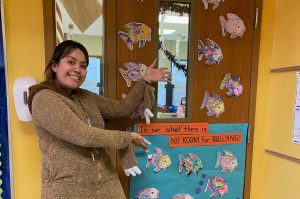
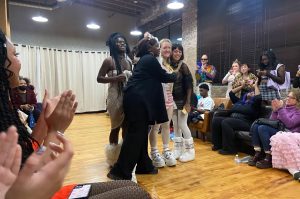
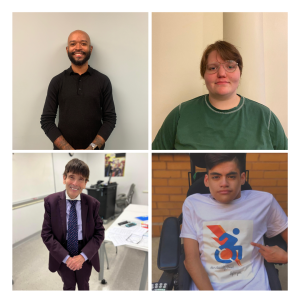
Be First to Comment